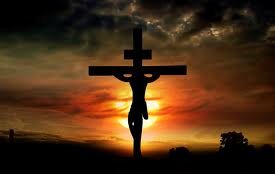O Lord God of Heaven’s Armies, hear my prayer.
Listen, O God of Jacob. – Psalm 84:8
Events B.C.
- ~2000 Abraham meets Melchizedek, King of Salem and Priest of “God most high” (El Elyon), Genesis 14:18 -20, Hebrews 6:20-7:22). Abraham journeys three days from Beersheba or Gerar to Mt. Moriah in Jerusalem to offer his son Isaac as a sacrifice in obedience to God’s command. God provides a ram as a substitute. (Genesis 22, Hebrews 11:8-19). Mt. Moriah is the site of the Temple Mount.
- 1000 The Jebusite stronghold in Jerusalem is captured by King David. The city of David is built south of the Temple Mount.
- 910 Solomon’s Temple is plundered by Shishak (Sheshonk) Pharaoh of Egypt. Much gold and silver are taken. (1 Kings 14:25-28, 2 Chronicles 12:1-11
- 716 Hezekiah, king of Jerusalem, with help of God and the prophet Isaiah resists Assyrians attempt to capture Jerusalem. (2 Chronicles 32). Wells and springs stopped up.
- 586 9th of Av. Nebuchadnezzar burns the city, and destroys the Temple. He murders many of the inhabitants and carries off a great number into captivity. (2 Kings 24-25, 2 Chronicles 36). The destruction of Jerusalem is the starting date for the “Times of the Gentiles”–Yeshua said, “Jerusalem shall be trodden down by the gentiles until the times of the gentiles are fulfilled” (Luke 21:24 ). Messiah’s return in glory will close this period of Israel’s history.
- 517 Through the leadership of Nehemiah and Zerubbabel, the Second Temple is completed despite fierce opposition and delays. An altar of sacrifice is built on the Temple Mount. Temple is completed after a fifteen year delay.
- 332 Flavius Josephus records that Alexander the Great’s invading army is met by priests outside of Jerusalem. They convince him not to destroy Jerusalem by showing prophecy contained in Scripture concerning him. Alexander spares city and the Temple.
- 334-167 The Hellenistic Period. The Jews, in the land, are under the successive dominion of the Greeks, then the Ptolemies of Egypt, and then the Seleucids of Syria. This is the third great world empire to dominate the Jews during the times of the gentiles. It is the belly-and-thighs-of-brass era (Daniel 2:32. 39; Josephus, Antiquities 11.7-12.6; Daniel 11:2-20).175-163 The reign of Antiochus IV Epiphanes whom Daniel saw as a type of the coming Antichrist (Daniel 8:1-2; 11:21-35; Josephus, Antiquities 12.5-9; 1 Maccabees 1:16:16; 2 Mac. 4:7-9:28).167-63 The Maccabean revolt and subsequent Hasmonean dynasty in Judea. A short time of Jewish independence. This is the little-help period of Daniel 11:34. (Josephus, Antiquities 12.6-14.4).
“O Lord God of Heaven’s Armies, hear my prayer. Listen, O God of Jacob,” wrote David.
You may not have followed every ebb and flow of the battle for Jerusalem for the last 3000 years.
…it is supposed that David penned this psalm when he was forced by Absalom’s rebellion to quit his city, which he lamented his absence from, not so much because it was the royal city as because it was the holy city, witness this psalm, which contains the pious breathings of a gracious soul after God and communion with him.
The events in Jerusalem prior to Jesus Christ, the Messiah of God, do not seem to echo the voice of an almighty God. The events of scripture do not always lead us to a faith where we would confidently stand stronger in our faith in the LORD of Heaven’s armies.
Yet into this history of defeat of God’s chosen and destruction of the Temple of God’s chosen came a Son of Man, sacrificed on the cross for your sins and for mine.
Luke 13:34 O Jerusalem, Jerusalem, the city that kills the prophets and stones those who are sent to it! How often would I have gathered your children together as a hen gathers her brood under her wings, and you were not willing!
In death, Christ has defeated sin and death.
In resurrection, Christ IS risen to victory as the LORD of Heaven’s Armies.
In victory, Christ Jesus will return once more.


Leave a Reply